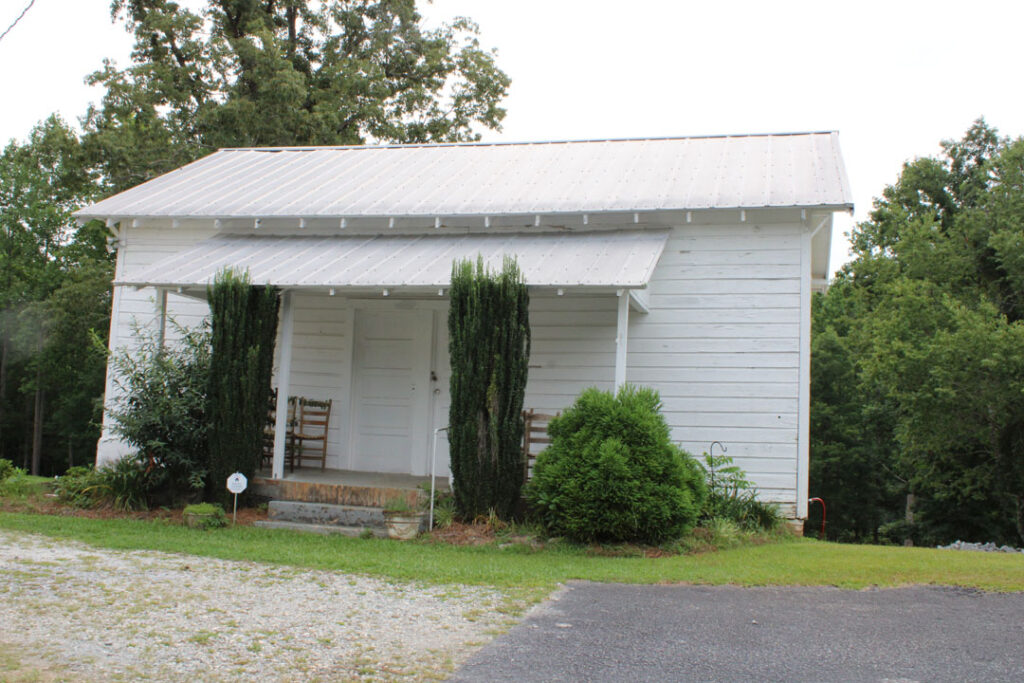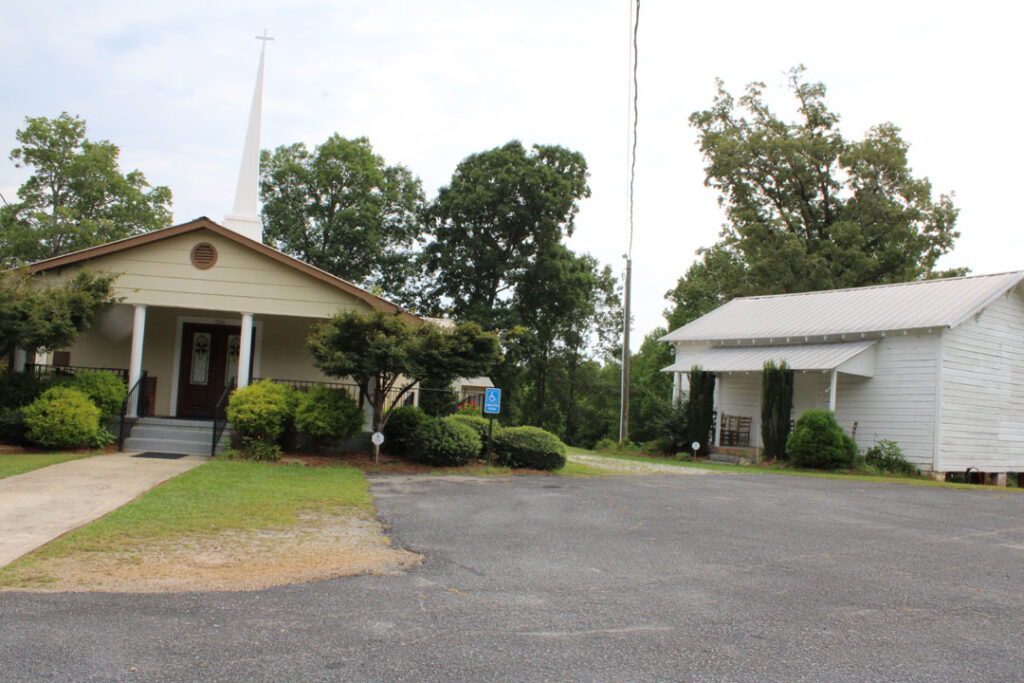Soapstone Preservation Endowment receives $250,000 grant from National Trust for Historic Preservation
By Karen Brewer, Publisher & Editor


The National Trust for Historic Preservation announced on February 24, 2025 that Soapstone Baptist Church in Pickens County, the oldest active African American church in South Carolina, has been awarded a $250,000 grant from the African American Cultural Heritage Action Fund. Soapstone Baptist Church is one of 30 historic black churches nationwide, chosen out of 622 applicants, that will receive a total of $8.5 million as part of the third annual Preserving Black Churches (PBC) grant program.
The African American Cultural Heritage Action Fund, founded eight years ago, has raised more than $150 million and is committed to preserving historic African American sites across the country.
Brent Leggs, Executive Director of the African American Cultural Heritage Fund, issued the following statement: “We are honored to support the ongoing legacies of these churches, which have stood at the forefront of social progress for generations. This $8.5 million investment marks a critical step in safeguarding historically black churches as enduring symbols of faith, strength, and community leadership. By preserving them, we ensure that their powerful presence continues to live on in their communities and inspire future generations.”
Soapstone Baptist Church was organized in 1865 in the Liberia community. The original church was burned by arsonists in 1967, but in 1968 the current church was built. The one-room historic Soapstone schoolhouse sets near the church. The grant will go toward the Soapstone Endowment, which will help fund maintenance of the grounds and insurance premiums and a preservation manager, according to the National Trust.
“I’m just so excited a little small church like Soapstone was able to get a grant of that magnitude,” Mable Owens Clarke told The Pickens County Chronicle. “I’m just so blessed. I know God worked it out. Out of 622 that had applied, they only accepted 30. Soapstone was among the 30. I’m 83. At least that will be some money to help maintain the church, where that church can still be taken care of. And, this way, I feel comfortable, too, even after I’ve gone on to glory, that that church is going to be forever protected. That’s what I’m really happy about.”
“We’re still floating on air a little bit,” Carlton Owen, who chairs the Board for the Soapstone Preservation Endowment, told The Pickens County Chronicle. “We’re extremely pleased that the National Trust recognized that church and its history, especially how rare it is to have a minority community established in Appalachia, like Soapstone was. It puts us $190,000 away from our ultimate goal, and I’m hoping this will energize people to help us get there before the 160th anniversary, which is this year.” Owen added, “Working with Soapstone and the wonderful people over there has been an honor.”
Speaking of the Soapstone Endowment, Owen said, “For a tiny church like that to say we’re going to try to amass a $1 million endowment, it might as well have been $50 million, but we’re really close, and it’s thanks to the generous support of a lot of folks in the Upstate, and then the South Carolina legislature providing us a matching grant of $250,000, and now the National Trust $250,000. It’s just been overwhelming.”
The grant from the South Carolina legislature was matched with $250,000 of privately raised funds. “That got us to a little over $500,000,” Owen said. “And we had to match the National Trust grant, so we have plenty of funds to do that. We were required, with the application we made to the state, to match dollar for dollar with private funds if they granted us that grant, and they did. And, now, with the National Trust, we were required to match that, and we have the money in the bank to do that.
“This is a true endowment, meaning it will be there forever and we can only use interest and earnings to advance the work on keeping the historic grounds.”
Owen said that, although not everything is in hand, with all of the pledges and grant money, the total reached so far is about $810,000. “Our goal is $1 million, and we hope to get there before the end of the year, since this is the 160th anniversary of the founding of the community.”
Owen said that he grew up in Mississippi during the Civil Rights movement. “I’ve admitted to Mable I wasn’t the most sensitive person on the planet. We have to remember our history. The story of Soapstone, to me, is a lot like the way we treated the Native Americans. We sent them off to places that we thought had no value, and, then, the minute we find out they have value, we take them back. We sent the Cherokee and the Choctaw to Oklahoma, and they have oil, we want it. We sent the freed slaves to northern Pickens County to poor soils and mountain land with rocks, and now it’s beauty and recreational areas, and in the ‘50’s, people were trying to take those lands back.
“The long-term vision is to make this a much more official tourist stop in northern Pickens County. It’s just three miles off Highway 11. And tourists go to Table Rock and all the other stops up there. We want people to be able to see the one-room school, the church, the Soapstone mine, and understand the history of both the Cherokees on that property and the African Americans.
“One of the things we want to do is establish a black history trail, because there are folks who love to go follow Civil War history and others that want to follow Revolutionary War history or visit Indian mounds. One of things that is unique about Pickens County is that story. Most people think slavery in South Carolina has only been in the Low Country with the plantations. But the census in 1865 shows that there were 4,000 slaves in what was called Pickens District at the time, which would be modern Pickens and Oconee County. People didn’t own 100 slaves, but they had slaves.
“We often want to deny the more egregious part of our history. We need to acknowledge it and just do better now.
“I’ve told Mable I can’t do anything about slavery. I can’t do anything about the Civil Rights movement. But I can do better now to help people that need help. And I think that’s what we’re supposed to do. I’m a person of faith and taught Bible study for years. One of the things I always quote is God picks Abraham to be the leader of the Israelites and says, ‘I’m going to bless you to be a blessing.’ He didn’t say, ‘I’m blessing you because you’re better than anybody else and you deserve it and go live a great life.’ Most Americans, we’ve been blessed beyond belief, but we’re supposed to be a blessing to our neighbors and people we don’t know across the road and around the world.”
Owen referred to the upcoming celebration in April, at which time the historic Soapstone School will be reopened. “We’ve just finished furnishing the one-room school,” he said. “I’ve been searching for period items all over North Carolina and South Carolina. It will be part of that celebration in April. We’ll open the doors to the restored 1920’s school.”
Referring to the Soapstone community, including Soapstone Church and Soapstone School, he said, “I think it’s something Pickens County has, to be proud of, to have Soapstone.”
Below, watch two videos, by Preston Bailey, about Soapstone.
